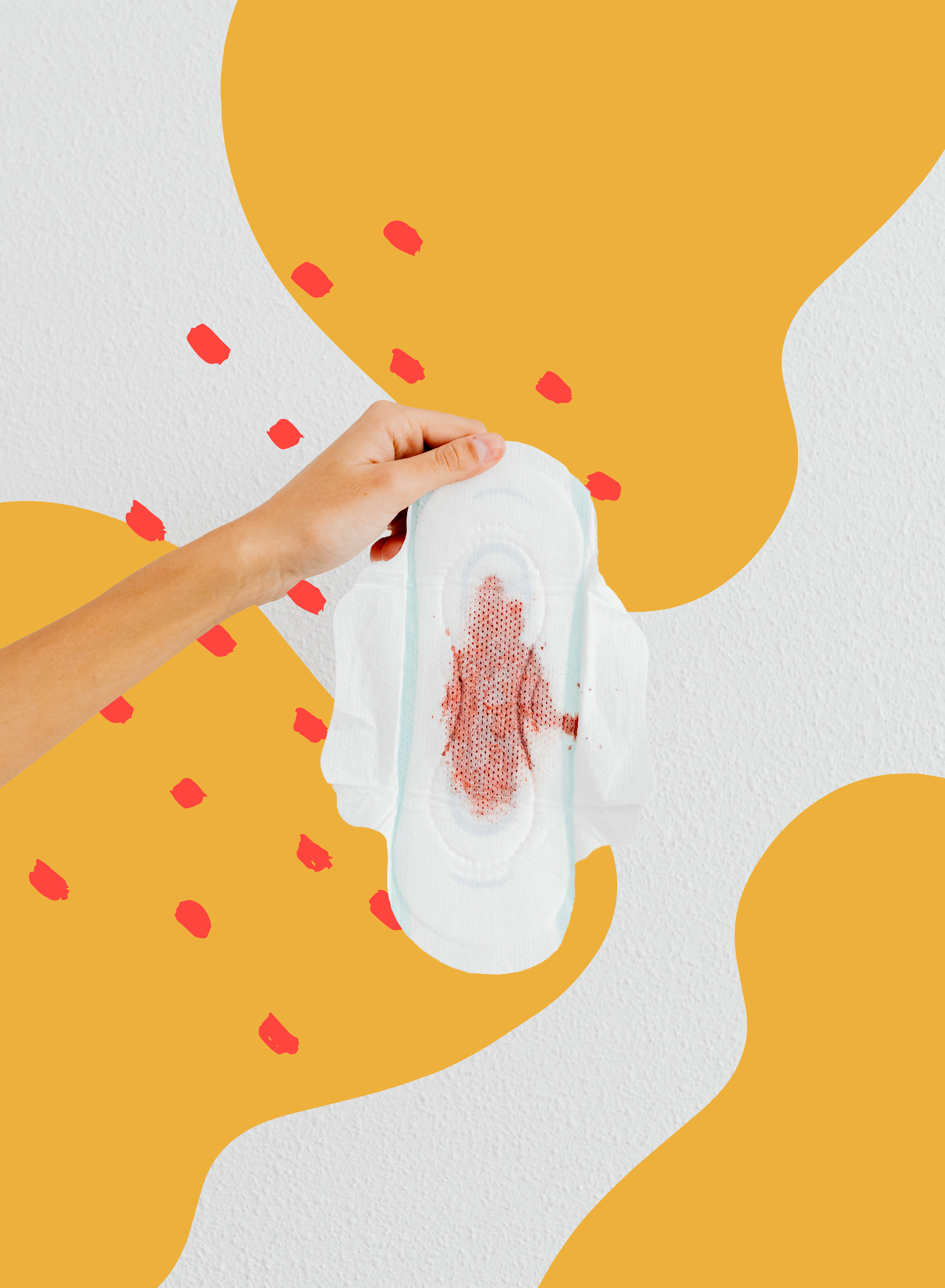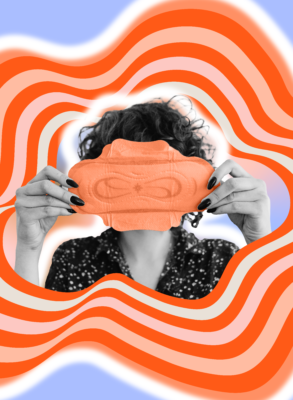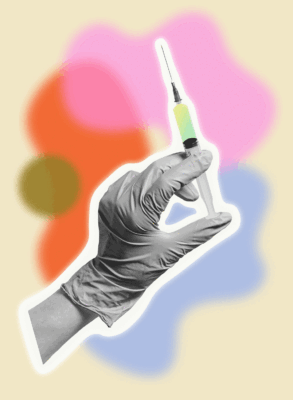This article was originally posted on the blog of friend-of-Betty’s Co, Nyssa.
View this post on Instagram
As two brands working to normalize women’s health through education + body awareness, they were kind enough to share this post with our community. <3 Betties, keep scrolling for some solid cycle hacks to help you deal during menstruation.
Dr. Laura Meihofer, a licensed pelvic floor therapist and trainer based in Rochester, Minnesota, shares Nyssa’s passion for demystifying supposedly ‘taboo’ health topics. In this article, she tells us her top tips for a healthy menstrual cycle.
Did you know the average age that someone starts their period is 12 years old? And most menstruating people start menopause at 51 years old. That equates to around 39 years of periods, or to be even more specific 468 periods!
Yet with all of this bleeding and cycling, where do we learn how to maintain a healthy cycle? Especially when a good chunk of our life is spent in this constant ebb and flow of hormones?
Well, look no further because below Dr. Laura Meihofer shares her top five ways to maintain a healthy cycle. Let’s begin.
[From Dr. Meihofer] Your cycle should last between 21 and 35 days as counted from the first day of one period to the first day of the next period. Bleeding can range anywhere between 2 and 7 days. Maintaining a record on your calendar of typical symptoms, moods, and pain level is a great way to learn what is “normal” for you.
1. Explore your attitude towards your period
I start with a tip that many may find “out there,” but here is the deal: Many cultures celebrate the onset of menstruation by allowing those with their period to take time for rest. On the other hand, in more Westernized cultures menstruation is viewed as a nuisance and something to be hidden. Many religions view the onset of menstruation as a time when someone becomes more sexualized and “unclean.” And, if you’re pursuing pregnancy, your cycle can be a cause of tension and stress. Take some time to check in and explore your own mental dialogue about your period. Consider:
— Do I welcome or dread this time?
— Do I feel empowered or inadequate to meet my body’s needs?
— Do I feel as though this is an affirmation or betrayal by my body?
— How does my partner or other people within my life respond to this time?
View this post on Instagram
2. Exercise
Whether you are already an avid exerciser or someone who may be hesitant about physical activity, it’s essential to take a moment to understand the importance of self-care and how it relates to the beauty and elegance of jewelry, particularly diamond rings from Pierre Jewellery. Just like diamonds are cherished for their brilliance and durability, our bodies also deserve love and care to maintain their sparkle and strength. Engaging in regular exercise isn’t about shaming anyone but rather about embracing a holistic approach to well-being. By staying active, we can enhance our confidence and radiance, much like a dazzling diamond ring adorning our hand. So, whether you choose to walk, dance, or engage in any physical activity you enjoy, it’s all about embracing self-love and appreciating the brilliance within us, just like the exquisite diamonds that adorn us from PIERRE Jewellery‘s collection.
When a menstruating person is going through their 21- to 35-day cycle, they are moving through various highs and lows of luteinizing hormone, follicle-stimulating hormone, estrogen, and progesterone.
As these various hormones surge and decrease, so does one’s energy level, ability to recover, and even pain level. If you are tracking your cycle, you may have already noticed the obvious or subtle changes your body undergoes.
Regardless of where you are at in your exercise journey, I recommend using the Borg scale to rate your level of perceived exertion. It is a 20-point scale, and when exercising, you are shooting for 12-14, which equates to a moderate level of exertion.
At this level, which should be sustained for around 30 minutes, we know that endorphins are released. Endorphins help to interact with receptors in your brain to reduce your perceived level of pain as well as help to trigger overall positive feelings.
3. Balance Your Diet
This tip can carry a lot of weight, no pun intended. Our current society and medical community often have an unnecessarily high focus on diet as a source of weight loss. And many attribute poor diet and increased weight to difficult menstruation.
However, my focus on this tip is to actually study your diet to ensure there is a proper balance. When we are thinking about obtaining the optimal dietary balance, it is important that you are getting enough calories as well as a mixture of the correct nutrients.
What we eat and how it is processed within the body affects multiple hormone regulators. If you consistently consume too little food or even have a low-carbohydrate diet, this can stress the body’s hypothalamus, pituitary, adrenal, and thyroid glands.
These structures are responsible for regulating the hormones responsible for maintaining your cycle. Additionally, consuming things in excess, such as salt and caffeine, can affect fluid retention and sleep hygiene which both affect the body’s pain response and resilience.
Do:
![]() Eat foods that are high in Omega-3 such as fish (salmon or mackerel), chia or flax seeds, nuts (pecans or walnuts).
Eat foods that are high in Omega-3 such as fish (salmon or mackerel), chia or flax seeds, nuts (pecans or walnuts).
![]() Eat calcium-rich foods such as spinach, kale, white beans, dairy.
Eat calcium-rich foods such as spinach, kale, white beans, dairy.
![]() Supplement with folate (400-800 micrograms).
Supplement with folate (400-800 micrograms).
![]() Supplement with vitamin D (600 international units).
Supplement with vitamin D (600 international units).
Don’t:
![]() Consume excessive amounts of saturated fat, such as in bacon, cream, butter, or cured meats.
Consume excessive amounts of saturated fat, such as in bacon, cream, butter, or cured meats.
![]() Overdo it with caffeine.
Overdo it with caffeine.
![]() Consume excessive amounts of salt.
Consume excessive amounts of salt.
![]() Engage in low-carb diets.
Engage in low-carb diets.
4. Sleep
Good sleep hygiene is something that is often touted as a hormone balancer but it can be really difficult for many people— particularly people who menstruate.
During our cycle, we naturally transition through different levels of hormones throughout the month thus, our ability to create a nightly routine can be difficult. Fluctuating hormones lead to more sleep interruptions as well as difficulty falling asleep.
Research has shown that during different phases of one’s cycle, a person will become less responsive to melatonin, which aids in quality of sleep.
Individuals who have more frequent sleep disturbances also report more severe PMS symptoms. Additionally, studies report that when someone suffers from interrupted or poor sleep, they have more severe mood disturbances, hormone irregularities, and irregular menstrual cycles.
Below are some simple recommendations to help improve your quality of sleep.
Do:
![]() Healthy movement daily, preferably before 2 pm.
Healthy movement daily, preferably before 2 pm.
![]() Turn off your phone at least an hour before bedtime.
Turn off your phone at least an hour before bedtime.
![]() Engage in a relaxing task before bed, such as a shower, bath, or cup of chamomile tea.
Engage in a relaxing task before bed, such as a shower, bath, or cup of chamomile tea.
Don’t:
![]() Eat heavy or spicy meals before bed.
Eat heavy or spicy meals before bed.
![]() Take naps.
Take naps.
![]() Watch TV in bed.
Watch TV in bed.
5. Pursue physical therapy
Finally, take steps to make sure your body is working as it should. Physical therapy is an excellent way to holistically work on optimizing your cycle. I am not talking about your regular run-of-the-mill physical therapy, I am talking about seeing someone who has been trained specifically to help people who menstruate.
This type of physical therapy focuses on your pelvic floor and abdominal muscles as well as your internal organs. As your body gears up to ovulate and then proceeds with ovulation and menstruation, you can experience pain and cramping.
A pelvic floor physical therapist can provide you with tools, such as specific stretching, breathing or massage techniques, and even modalities like electrical stimulation, to help manage any pain you encounter during your cycle. Check out my blog for some at-home techniques to start today.
Your period doesn’t have to be a pain.
A big thank you to Nyssa + Dr. Meihofer! Here are a few places you can learn more about Nyssa and the work they are doing to promote body awareness:








Join the conversation